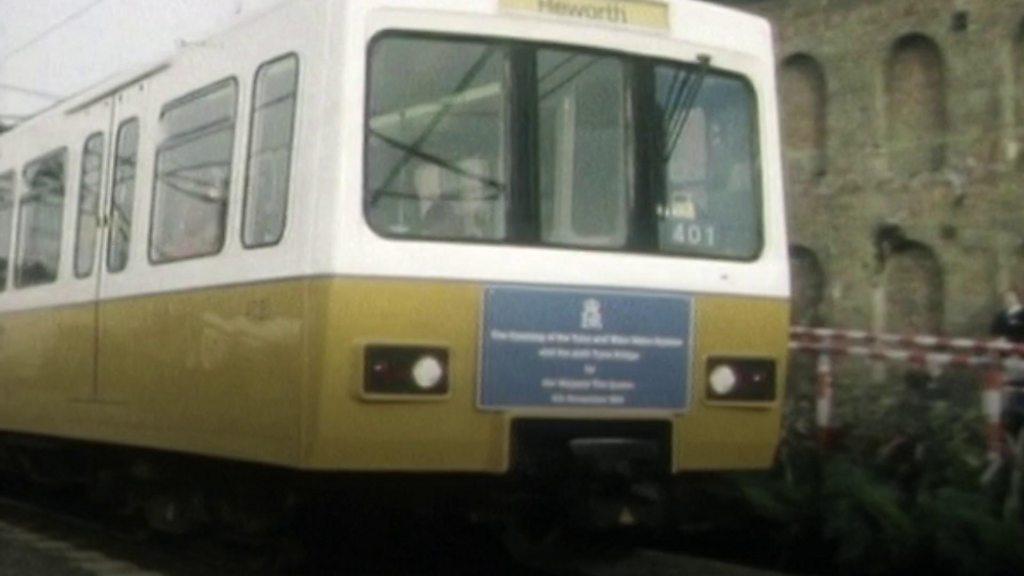Tyne and Wear Metro bail-out could save bus services
- Published
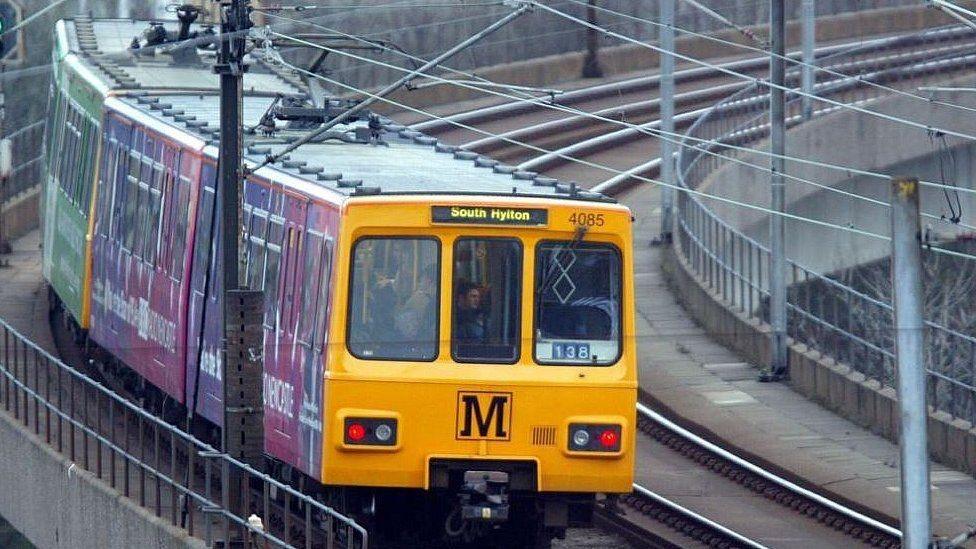
Council leaders said failing to help Metro operator Nexus could harm vital bus services
Failing to bail out the cash-strapped Tyne and Wear Metro could "decimate" bus services, council leaders said.
Government money to cover local transport losses during Covid is to be withdrawn in March.
Tyne and Wear's five local councils said they were "reluctantly" set to give Metro operator Nexus £4m to avoid even deeper blows to public transport.
The Department of Transport said it had spent £1.5bn on its Coronavirus Bus Service Support Grant scheme.
The Local Democracy Reporting Service, external said Nexus was planning to reduce the amount it reimburses the bus companies for carrying passengers with free bus passes by £7.5m.
If Newcastle, Gateshead, Sunderland, North Tyneside and South Tyneside councils were unwilling to up their payments to Nexus, the cuts would therefore likely come from the Shields Ferry and Nexus-secured bus services.
The council leaders said bailing out publicly-owned Nexus saved bus routes otherwise deemed unprofitable.
In a statement the leaders said that communities "face having their public transport links severely cut back."
They added: "As council leaders we cannot allow this to happen.
"People in our communities need bus services to access jobs, schools and colleges, and essential services like healthcare. Buses also support our efforts to improve air quality and reduce carbon emissions.
"We need Nexus, on our behalf, to be able to maintain its expenditure on publicly-funded bus services in the worst affected areas, staving off the worst effects of commercial bus cuts by maintaining the most important transport links in places like the Outer West of Newcastle."
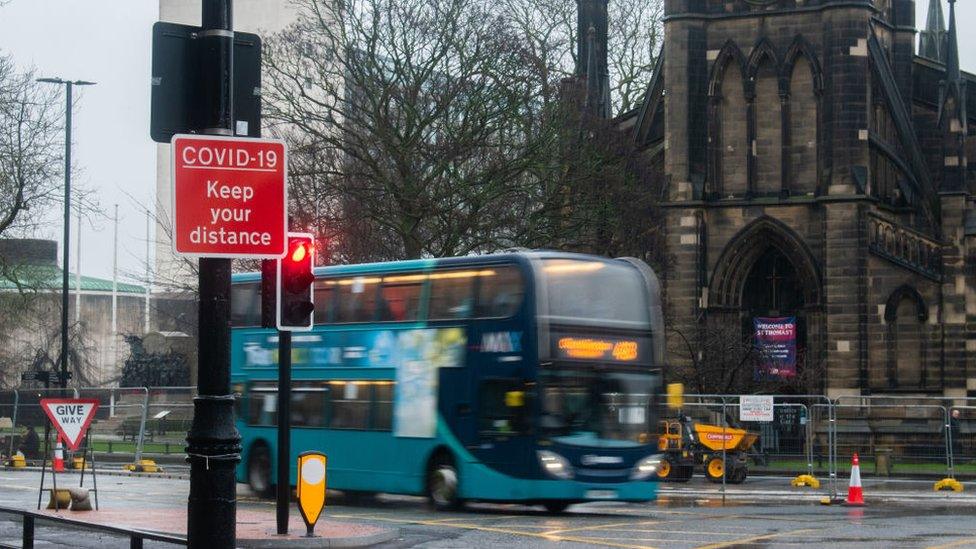
The council leaders said bailing out publicly-owned Nexus saved bus routes deemed unprofitable
These include school buses, early morning and late night services, and routes to outlying areas that are not considered commercially viable.
The £4m bail-out is now set to be agreed, but must be formally signed off at a meeting of the North East Joint Transport Committee that is yet to be rescheduled.
Martin Gilbert, chair of the North East bus operators' association NEBus, said cuts were still "likely", with passengers levels about 30% lower than before the pandemic.
However, he said operators would work with councils to "deliver the most efficient and best possible outcome with the resources available".
The Go North East chief added: "We join the calls of the regions' politicians for an extension of bus funding to allow more time for the market to recover across more services."
A Department for Transport spokesman said: "We have provided unprecedented support for the bus sector during the pandemic.
"We are closely monitoring passenger levels and continue to work with the bus sector to ensure services always meet demand."

Follow BBC North East & Cumbria on Twitter, external, Facebook, external and Instagram, external. Send your story ideas to northeastandcumbria@bbc.co.uk, external.
- Published22 October 2021
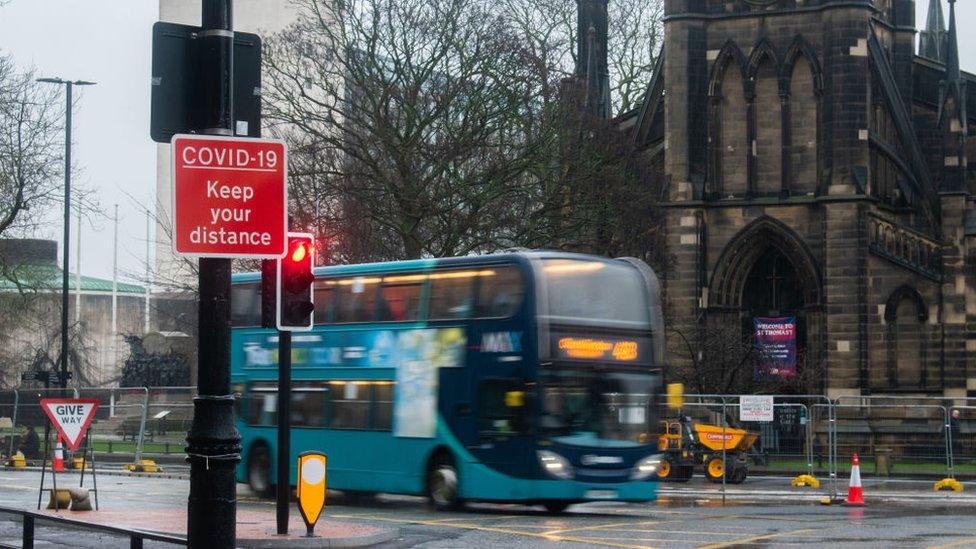
- Published17 July 2021
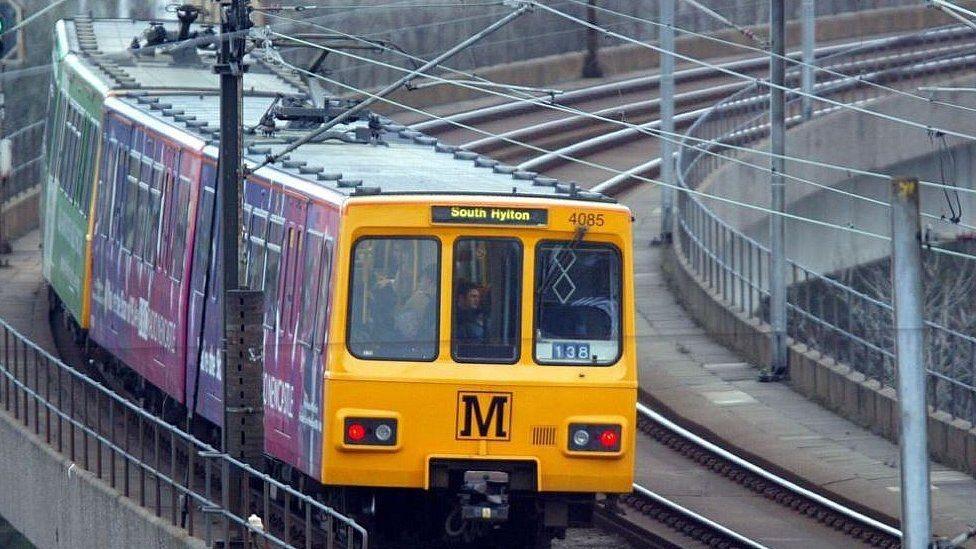
- Published15 July 2021

- Published11 August 2020
